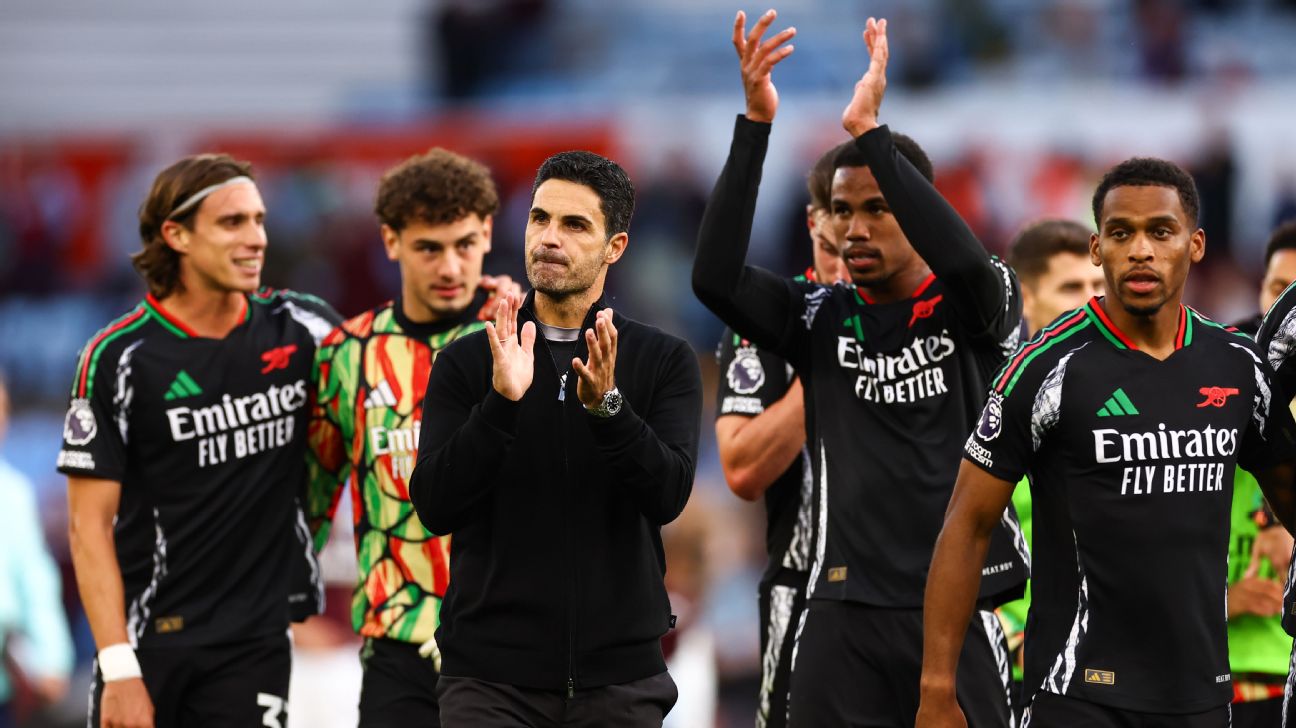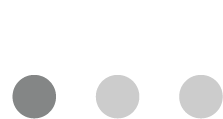This weekend saw the German Bundesliga kick into gear for 2024-25 to join the English Premier League, Spanish LaLiga, Italian Serie A and French Ligue 1 in action, and with plenty to talk about. For a start, it’s Week 2, so maybe don’t read too much into Arsenal winning away at Aston Villa? The same is true of Man United’s defeat at Brighton, one that was down to individual errors (fixable) rather than more malaise within Erik ten Hag’s squad.
In Spain, Robert Lewandowski and the Barca kids fired the club to victory over Athletic Club, Erling Haaland scored three in Man City’s rout of Ipswich Town, Kylian Mbappé was upstaged on his Bernabeu debut for Real Madrid by another new arrival, Endrick, and Chelsea run rampant in a promising display for new manager Enzo Maresca.
It’s Monday. Gab Marcotti reacts to the biggest moments in the world of football.
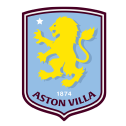
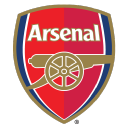 We love our narratives, but let’s not overstate the importance of Arsenal’s win at Aston Villa
We love our narratives, but let’s not overstate the importance of Arsenal’s win at Aston Villa
We love our storylines and, deep down, most of us are a little superstitious. So when Arsenal go away to Aston Villa — the only team to beat them twice last season — and return with all three points, it feels like a big deal, especially when Arsenal lost the title to Manchester City by just two points last season. If they can break the hex and beat Unai Emery, that’s the title right there, isn’t it?
Except that’s not how it works. If you want to play Captain Hindsight, Arsenal didn’t just lose to Villa last year, they were also defeated by Fulham, West Ham and Newcastle. Turn any one of those losses into draws and presto! They win the title.
All of this is nonsense, as reality says that only two things matter here: three points on the road against a Top Four contender, and the performance. The former is just arithmetic. The latter was more mixed than it appears.
So, about the performance. Emery knows what he’s doing, and Villa had the upper hand for long stretches. Ollie Watkins missed two enormous chances — one in either half — that could easily have sent them game into a different direction. For much of the game, Morgan Rogers was running rampant. This wasn’t a case of Arsenal imposing themselves on the opposition; it was a case of two teams with markedly different styles going at it and one of them, Villa, stumbling when it most mattered.
Sure, you can praise Arsenal for being resilient, mature and “laying down a marker” as some English media like to say. But that’s almost patronising with this side. This is what you expect from a group that has grown steadily over the past 18 months and already showed their mettle last season by taking City to the wire. The bar is higher this year, and so are the expectations. That’s how it works.
When Arteta looks back on the Villa win, he’s not going to be giddy; he’s going to analyze where they can continue to improve. Could they have executed better against Villa? Would a different personnel set-up have worked better? Might it work better going forward?
Arteta now has the options to make significant changes, if he thinks it’s the right thing to do. As I see it, the signing of Mikel Merino is a game-changer in terms of midfield depth while the arrival of Riccardo Calafiori, coupled with the return from injury of Jurriën Timber, addresses the defence. Some will still hammer Kai Havertz and talk about the need for a “proper center-forward” — Oh Toney, where art thou? — but regular readers will know how silly I think this talk is.
Would they be better off with a better striker than Eddie Nketiah as an alternative to Havertz? Sure. I imagine Victor Osimhen or Kylian Mbappe would make them a better team, but they also have books to balance. And only City scored more league goals than they did last season, with the much-maligned Nketiah giving them 10 starts in 27 total appearances.
Take the win and the three points. Be grateful that Watkins has had a rough start to the season. Understand what you can do better, and know you have every chance of winning the title this year.
As for Villa, the challenge is obviously building on last year’s fourth place, which is a tall order. Early indications are that the passing of the torch from Douglas Luiz to Amadou Onana in midfield can be seamless, and when Boubacar Kamara returns, they’ll have another really important piece in the middle of the park. Watkins’ funk won’t last forever, and in Rogers and Jhon Durán, they have genuine alternatives. They just can’t let Saturday’s finishing get them down.
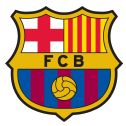 Cash woes continue to bite, but kids and Lewandowski are enough to fire Barcelona past Athletic Club
Cash woes continue to bite, but kids and Lewandowski are enough to fire Barcelona past Athletic Club
Let’s remind ourselves where we are, shall we?
When Barcelona faced Athletic Club on Saturday, there were three 17-year-olds in the starting lineup (Marc Bernal, Lamine Yamal and Pau Cubarsí), while the second-most experienced player on the bench was Fermín López, who is 21 and has one top-flight season under his belt. Gavi, Frenkie De Jong, Ronald Araújo, Andreas Christensen and Ansu Fati were all injured. Ilkay Gündogan was at Manchester City, having rescinded his Barca contract so that they could save on his wages and move a step closer to registering their big summer signing, Dani Olmo. (At present, they’re over the spending cap, though they may just get there if — as they expect — they can shift Vitor Roque and Clément Lenglet.)
That’s the absurdity of the situation new boss Hansi Flick has to deal with. If everybody is fit — which, let’s face it, is a rare occurrence in the modern game — he’ll have a whopping six extra players … assuming Ansu and Christensen aren’t also sacrificed to the almighty bean counters. Barcelona, of course, are paying for the excesses of the Jose Maria Bartomeu Era as president, the global pandemic and the tightening of the screw in terms of financial oversight. But make no mistake about it: this is also on Joan Laporta and his “economic levers,” which essentially sacrificed a portion of future revenues in exchange for the spending sprees of 2021 and 2022.
Laporta inherited a dumpster fire, but he didn’t exactly reach for the extinguishers. In fact, you can only wonder what might have been if, instead of mortgaging the future to bring in high-priced veterans the club could not afford, he had stuck with a couple of years of austerity and faith in youngsters. Because, as it turns out, these kids are pretty darn good.
Hindsight is 20/20, of course, and, to be fair, one of the guys who delivered the win over Atletico Club — a deserved victory that saw Barca appear to get stronger as the game went on — was Robert Lewandowski, exactly the sort of pricey veteran acquisition many of us lambasted as short-sighted at the time. (He’s 36 and will leave a big gaping hole when his deal expires at the end of next season.) But the rest were La Masia kids — especially Bernal, who plays with the poise of a guy 10 years older — and Yamal, who outclassed Nico Williams, the “other” winger from Spain’s Euro-winning side.
It’s hard to predict what Barca’s season will look like. On paper, Real Madrid are way ahead, but equally, this is LaLiga, which means that, barring divine intervention, Barca will still finish top four. There’s excitement over the kids and what will happen when Gavi, Araujo and De Jong return, but there’s also trepidation about what happens when the next financial shoe drops. As for Athletic, one point from two games and a drab performance on Saturday means last season’s jubilation feels a long way away.
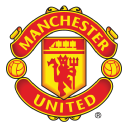 Individual errors (mental and technical) are things you can fix, as Man United leave Brighton with positives
Individual errors (mental and technical) are things you can fix, as Man United leave Brighton with positives
You should worry when you get outplayed or when your players simply can’t hack it, though that’s not what happened to Manchester United in their 2-1 defeat at Brighton on Saturday morning. Harry Maguire shaking his head and saying “I just couldn’t get there” on Danny Welbeck‘s goal is an individual issue and one that, you imagine, will be resolved when either Matthijs De Ligt or Leny Yoro are in his place. The collective brain cramp that allowed Joao Pedro to become invisible and unmarked at the far post was so extreme that, presumably, you don’t even waste time reviewing it on film. You just never speak of it again. And Joshua Zirkzee‘s touch that caused Alejandro Garnacho‘s goal to be disallowed is also in the extreme/black swan event category: it won’t happen again.
Had those gone the other way, we would have had a result of the sort Erik Ten Hag can build on. And they’re all fixable. I’d be more encouraged by the fact that United, even with all their current flaws — no Rasmus Hojlund, Marcus Rashford in a funk, Mason Mount playing catch-up — had the upper hand for significant stretches against a better footballing side like Brighton.
Nobody is going to celebrate a defeat, but as performances go, this was by no means poor. There’s a very long laundry list of things to fix, but, for now, both the spirit and output seem positive. That’s not something you would have taken for granted when it was announced that Ten Hag was returning.
Quick hits
TEN — Haaland is Mr. August (and he’s pretty good the rest of the year, too): The big Norwegian’s hat trick in the 4-1 drubbing of Ipswich (after going a goal down) brought his August tally to 27 goals in 18 games dating back to his time at Salzburg. It’s probably a statistical quirk, but it’s pretty remarkable all the same. Two of his goals were gifts from Ipswich, but you have to be there to convert. And City — who also hit the woodwork twice — could have notched half a dozen.
NINE — Inter’s “T+T” powers champs past Lecce, and this time … no mistakes: Mehdi Taremi made his first start for Inter in the absence of Lautaro Martínez and showed how his workrate and muscle can add a different dimension alongside Marcus Thuram. It’s the sort of third option they haven’t had in a while. Most important was getting the three points and not making the silly mistakes that cost them in the opener — Inter did just that en route to a 2-0 win.
EIGHT — Tottenham pummel Everton, but it’s tricky to tell what Big Ange has in mind: You can only beat what’s in front of you, as the saying goes, so the fact that Everton aren’t particularly good and were missing half a dozen players shouldn’t take away from Tottenham’s 4-0 win. You just wonder what manager Ange Postecoglou has in mind with his front six. Son Heung-Min will obviously start on the left, with Dominic Solanke (presumably) through the middle (though Son deputized very well up front Saturday). James Maddison and Yves Bissouma, you imagine, will be in the mix. But there’s also Rodrigo Bentancur, Pape Sarr and the wunderkinder pair, Archie Gray and Lucas Bergvall, for which to account. Oh, and their winger corps includes Brennan Johnson, Timo Werner, Wilson Odobert (he looked sharp on Saturday) and Dejan Kulusevski, who did well operating centrally against Everton. Not to mention Richarlison kicking about, too. That’s a lot of options of comparable quality.
SEVEN — Slot’s impact is evident as he wins his Anfield debut: Arne Slot may have some principles in common with his predecessor, Jurgen Klopp, but in Sunday’s 2-0 win over Brentford (which could have seen Liverpool score more) we saw a tweaked set-up — Dominik Szoboszlai effectively serving as a No.10 on the centre-right of midfield — and a more possession-oriented approach. It’s an interesting transition. Judging from the performances of Virgil Van Dijk and Mohamed Salah — two of Liverpool’s three free agents-to-be, with contracts expiring next summer — they’ve taken to it like ducks to water. Less so Trent Alexander-Arnold, who was substituted. There are big decisions ahead.
SIX — Kompany’s fresh, new-look Bayern Munich still need the “Old Guys” to bail them out: I’m talking about Thomas Müller, who didn’t actually touch the ball but wreaked enough havoc to provoke the own goal for the equaliser, and Harry Kane, whose finishing was off despite him playing a part in all three goals. Neither is an obvious fit for Vincent Kompany’s brand of football, but both were critical as the Bavarians nearly self-destructed after the break following a good first half. In the end, their laboured 3-2 win over Wolfsburg suggests managing that transition this season will be as important to the new boss as anything he does tactically.
FIVE — Kylian Mbappe upstaged by Real Madrid’s “other” new forward on Bernabeu debut: OK, that’s a little harsh, as Mbappe had a couple of chances to score and he’ll understandably need some time to find the right chemistry at Real Madrid. But it was Endrick who came off the bench and scored a phenomenal injury time goal. Without the injured Jude Bellingham, manager Carlo Ancelotti opted for Arda Güler and kept the 4-2-3-1 formation. The balance was a bit better, mainly because Guler ghosts to the right while Bellingham wanders to the left, clogging up an already high-traffic flank. But we’re not there yet, as evidenced by the fact that the breakthrough only came in the second half thanks to a long-range effort from Valverde. Overall, their 3-0 win shouldn’t paper over any cracks: against teams that sit deep, Real Madrid is missing creativity, whether in terms of individual (Toni Kroos is missed) or patterns of play (yes, balance is a thing).
FOUR — Maresca puts players where they belong and Chelsea run rampant: Enzo Fernández was back in front of the back four, Cole Palmer reverted to the No. 10 role and two pacy, north-south wingers in Noni Madueke and Mykhailo Mudryk occupied the flanks. (Never mind that the latter was poor and came off at half-time: Pedro Neto does pretty much the same things, only better, so the point stands.) The upshot is a 6-2 win over Wolves, marked by a Madueke hat-trick and four second-half goals. You’re still short on creativity in midfield, you don’t know what will happen with Romeo Lavia (who was injured) returns and who the hell knows where João Félix fits, but this looks more like the blueprint than what we saw on opening day.
THREE — Kvaratskhelia runs rampant in bounce-back win, but Napoli‘s season will probably be decided in the final hours of the summer transfer window: The Georgia international showed that he can be devastating in Antonio Conte’s set-up in the 3-0 win, which was important after the shambles on opening day. Now it depends on whether Conte gets his transfer targets — Romelu Lukaku (almost done), Billy Gilmour and Scott McTominay (yeah, I know, but Conte’s apparently a fan) — and that will in turn depend on how things turn out with Victor Osimhen. They’re some €60m down on their transfer spending this summer, and the trio they’re targeting will likely push it close to the €150m mark. The only way they can manage that — without serious future repercussions — is getting a decent fee for Osimhen (and shedding his big wages). With the Nigerian striker turning down offers from Saudi and wanting to stay in Europe, they have very little leverage and may have to settle for a cut-price fee in the €60m range, probably half of what Napoli would be happy with.
TWO — Sahin is right: winning the opener is important, but there’s a ton of work for Borussia Dortmund to do: In the end, the 2-0 opening day win over Eintracht Frankfurt came thanks to an individual effort and a garbage-time counter from a substitute (thank you, Jamie Bynoe-Gittens). But there was too much sterile possession, and Farès Chaïbi supplied a miss-of-the-season contender (xG: 0.84) seconds before Dortmund scored, and it probably would have changed the game. There are five big newcomers (though Serhou Guirassy is injured) to integrate, and it will take time to click properly.
ONE — Milan need to improve their defensive transitions in double-quick time: You can see the goals they conceded in the 2-1 defeat at Parma (carbon copies: counterattack, switch of play, finish from the left) and blame the defenders (especially Theo Hernández). But when you concede situations like that and you’re a pressing team, it means others aren’t doing their job properly further up the pitch, stopping the counter at the source. Paulo Fonseca says it’s “hard to explain the defensive attitude,” but, well … he needs to figure it out. And quickly.

